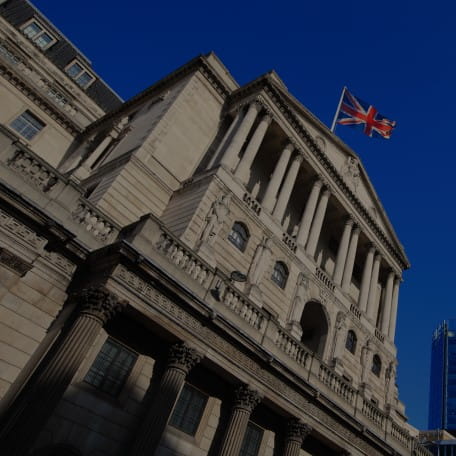- Nearly four out of five (79%) of companies that have reported so far say profits better than expected
- 63% report revenues that exceed analysts’ expectations
- Consumer discretionary sector surprises the most in profit terms
Financial markets this year have been fickle, with excessive volatility driven by investors’ over-reliance on whatever the latest data or news angle dictates. But investors get a much better idea of the true situation when companies deliver their reports and accounts.
As the latest quarterly reporting season draws to a close in the US, investors now have factual data on how corporate America is faring. So what do the results reveal?
Comprehensive updates on US results are provided by refinitiv IBES, and those for Q2 paint a mildly positive picture.
Profits surprises better than long-term average
The latest weekly report from refinitiv shows that of the 456 companies in the S&P 500 that had reported by 11 August, 79% reported earnings, or profits, that were better than market analysts’ expectations and 16% that were below. This was significantly better than the long-term average of 66% beating expectation.
Revenue, or companies’ total sales, was expected to finish 0.4% higher in Q2 than the same quarter last year, although this figure would be a significantly higher 4.3% if the energy sector were excluded, according to refinitiv. Thanks to sharp falls in oil and gas prices, energy suffered a 48% decline in revenue versus Q2 2022, although this was still marginally more (1.4%) than the market had expected.
More than three in five companies (63%) have so far reported Q2 revenues that exceeded analysts’ expectations, which was in line with the long-term average but below the 71% averaged over the previous four quarters.
Economic resilience bolsters consumer discretionary sector
The sector that surprised the most in profit terms was consumer discretionary (25%), which covers non-essential goods such as luxury and leisure items. Demand for such goods is correlated with a strong economy. Having been beaten down over the last year by the cost-of-living crisis, it performed significantly better than expected in Q2.
The information technology sector, which has led the S&P 500 higher this year, largely due to enthusiasm for the Artificial Intelligence theme, had seen earnings beat expectations by 7.5% at 11 August before Nvidia announced revenue had more than doubled in Q2 on soaring demand for its AI-related microchips, outstripping even the elevated expectations of analysts and sparking a rally in its shares after-hours trading2 . Notably, Apple, the world’s largest company by market capitalisation, announced profits significantly ahead of analysts’ expectations, even though revenue fell 1% on the year, as the number of its paying subscribers passed 1 billion. Amazon also announced stronger-than-expected online sales and a stabilisation in its cloud computing division that boosted its earnings significantly above expectations.
In terms of sales revenue, the sector delivering the biggest positive surprise was financials (4.3% more than expected). Utilities was the biggest downside surprise, with revenues -4.0% lower than anticipated.
Investors’ expectations are high
In summary, the Q2 results give a mixed picture of corporate America. On the positive side, companies have beaten analysts’ expectations for their profits at the highest rate since Q3 2021. But the degree to which they beat revenue forecasts was the lowest seen since early 2020.
Investors gave a lukewarm response to the results, but companies have much to live up to going forward: analysts expect S&P 500 companies’ profits to rise 1.3% and a substantial 9.7% on the year in Q3 and Q4 respectively, refinitiv says, before an 11.9% full-year increase in 2024.
The strength of the US economy will be a key factor in achieving these results. Despite the fears of global recession this year, the US economy has proven to be more resilient than expected, growing 2.4% on an annualised basis in Q2,1 and beating market expectations for a 1.8% rise. The downside of this is that an overheating US economy may well require the Federal Reserve to impose higher-for-longer interest rate policies to tackle inflation, which would have an adverse impact on equities.
Nevertheless, since the above results were released, global markets have seen recent selloffs prompted by various worries, for example, over a China property sector slump and German data pointing to the European Union’s largest economy. Sentiment is once again driving markets – at least, perhaps, until the next reporting season.
1 Source: Financial Times, 27 July 2023/ US Department of Commerce
2 Source: ft.com, 24 August 2023
KEY RISKS
Past performance does not predict future returns. You may get back less than you originally invested.
We recommend any fund is held long term (minimum period of 5 years). We recommend that you hold funds as part of a diversified portfolio of investments
All Liontrust Funds carry some degree of risk which may have an adverse effect on the future value of your investment. Therefore, before making an investment decision, you should familiarise yourself with the different types of specific risks associated with the investment portfolio of each of our Funds. There is no certainty the investment objectives of the portfolios or strategies mentioned in this document will actually be achieved and no warranty or representation is given, whether express or implied, to this effect.
The issue of units/shares in Liontrust Funds may be subject to an initial charge, which will have an impact on the realisable value of the investment, particularly in the short term. Investments should always be considered as long term.
DISCLAIMER
This is a marketing communication. It should not be construed as advice for investment in any product or security mentioned, an offer to buy or sell units/shares of any Funds or services mentioned, or a solicitation to purchase securities in any company or investment product. Examples of stocks are provided for general information only to demonstrate our investment philosophy.
The document contains information and analysis that is believed to be accurate at the time of publication, but is subject to change without notice. Whilst care has been taken in compiling the content of this document, no representation or warranty is given, whether express or implied, by Liontrust as to its accuracy or completeness, including for external sources (which may have been used) which have not been verified.










